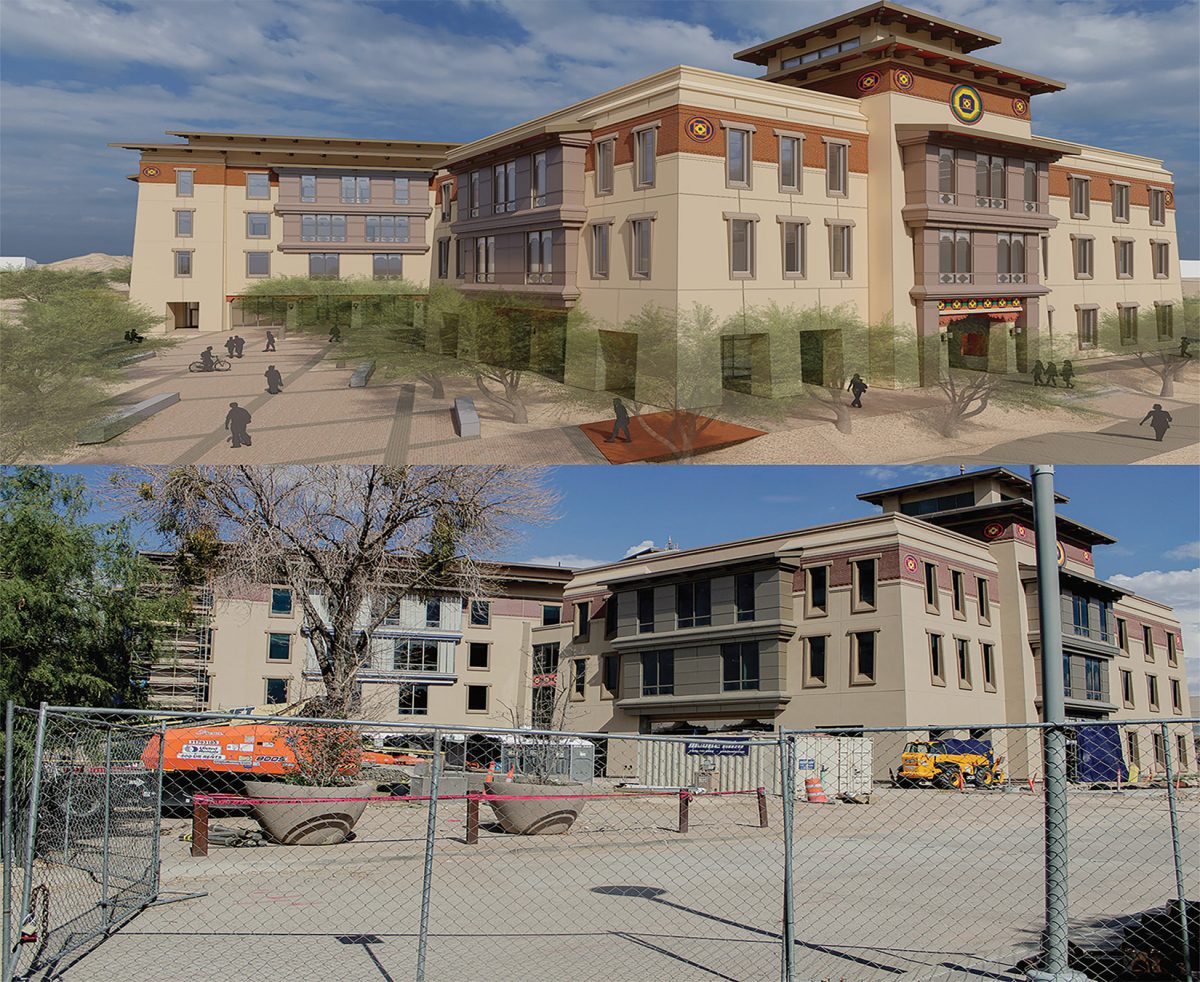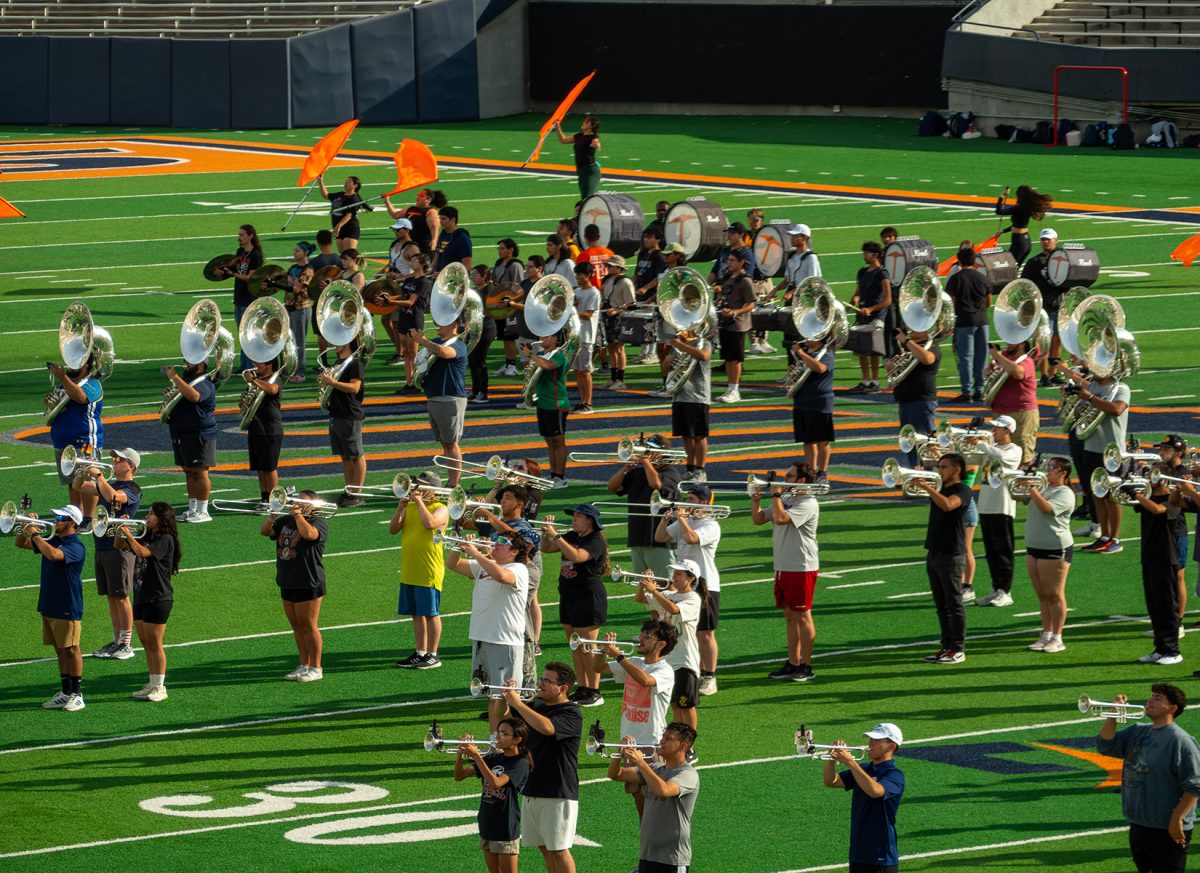Undocumented and poor—a common combination in people along the southwest region of Texas where individuals travel to the U.S. for any work they can find to help keep their family afloat. However, easy work that may come their way is not always fair or safe.
The Paso Del Norte Civil Rights project, a nonprofit organization that promotes racial, social and economic justice by means of education and litigation, helps individuals in these scenarios by asserting their rights or alleviating financial problems.
“The civil rights program is civil and human rights. We do litigation, investigation and education for people who have issues or problems with the authorities or those in law en-forcement,” said Sandra Arzate, office manager and paralegal for PCRP. “So that involves constitutional rights, freedom of speech, housing, American Disabilities Act in public places, schools, etc.”
According to the U.S. Department of Homeland Security, as of 2013 there are 11.7 million undocumented immigrants residing in the country. Out of those individuals, 7.8 million are in the labor force, according to the Pew Hispanic Research Center, and Texas has one of the largest shares of immigrants in the U.S. at 8.7 percent.
PCRP also has an economic justice program that litigates and educates individuals on wage theft.
“This is for when people don’t get paid their wages at all or they are owed money, which happens a lot here on the border because we have people who are undocumented working for minimum wage and they don’t know their rights,” Arzate said.
Unethical employers or contractors will hire undocumented workers because they can get away with paying them less, Arzate said, since they don’t know the minimum wage laws or employee rights.
Employees may try and contact these employers about wage theft, but contact is ignored, leading the employees in protest.
“These situations are more prevalent in South Texas because you have a lot of undocumented people who are desperate for work. So they come here to make a decent living, but they end up being victims because the employers do not pay them minimum wage,” Arzate said. “They are happy because they get paid higher than in Mexico, but it is still not right. The employer knows it is not right, they know the law and should know the law but doesn’t do that, and that’s where we come in.”
PCRP also has a Violence Against Women Act program, which helps undocumented victims of domestic violence, rape, torture, human trafficking or other forms of violence.
“The abusive person will usually not help the abused with filing their papers. They will just keep using the fact that they are undocumented to further control the victim and their children,” said Paulina Baca, VAWA coordinator with PCRP. “The VAWA law allows them to file an immigration petition with evidence of the abuse, and based on that they can obtain a work permit and have a legal permanent residence, if approved.”
PCRP collaborates with the social work programs at UTEP and NMSU by recruiting interns at the bachelor’s and master’s levels so that they can provide extra support where case workers may not be able to.
“We can further help our clients to provide a more holistic service for them, especially with the VAWA program since you are talking about undocumented individuals and fam-ilies,” Baca said. “It is not just about the immigration aspect of their case or economic problem they have, but also if they are homeless or don’t have food or have other needs they need to take care of.”
Arturo Vargas, junior political science major and event planner for PCRP, first began volunteering for the organization because of his interest in politics and budget planning.
“I did a fundraiser at Ripe Eatery throughout the month of June. I started there by investigating who would fundraise us and give us proper funds.
I went to Ripe and a couple days later. They called me saying that I could get 15 percent of profits from non-alcoholic beverages and certain specials that they make for nonprofits or fundraisers that they sponsor,” Vargas said. “Later, me and Paulina (Baca) did a presentation to all of the staff at Ripe that basically covered what we do and I made flyers and distributed them throughout the city.”
Planning fundraisers like the one held at Ripe has given Vargas experience in budget planning and a larger awareness about civil rights.
“This is what I’m interested in. I’m a part of Pi Sigma Alpha on campus and hopefully, one day, I can be a lawyer,” Vargas said.
PCRP will hold an Americans with Disabilities Act campaign July 27, where any lawsuits that need to be filed will be completed that day.
“It is the anniversary of when the ADA was formed in 1990. It is like a tradition to commemorate it,” Arzate said. “We usually announce the lawsuits and invite other organiza-tions and individuals with disabilities to participate, asking them which laws they want passed since they are personally affected by it.”
PCRP will also hold their annual fundraiser Oct. 31 at the Camino Real Hotel, where Reverend James Lawson will speak to the public.
“It happens every year and it is a big contribution to our financial sustainability. He (Lawson) mentored Martin Luther King Jr. and was an activist in the ‘60s. He’s a really good speaker, so we’re hoping for at least 200 people,” Baca said. “This is our chance to give back to the community, too, and give inspiration.”
For more information about the Paso del Norte Civil Rights project, visit texascivilrightsproject.org.
Lorain Watters may be reached at [email protected].










